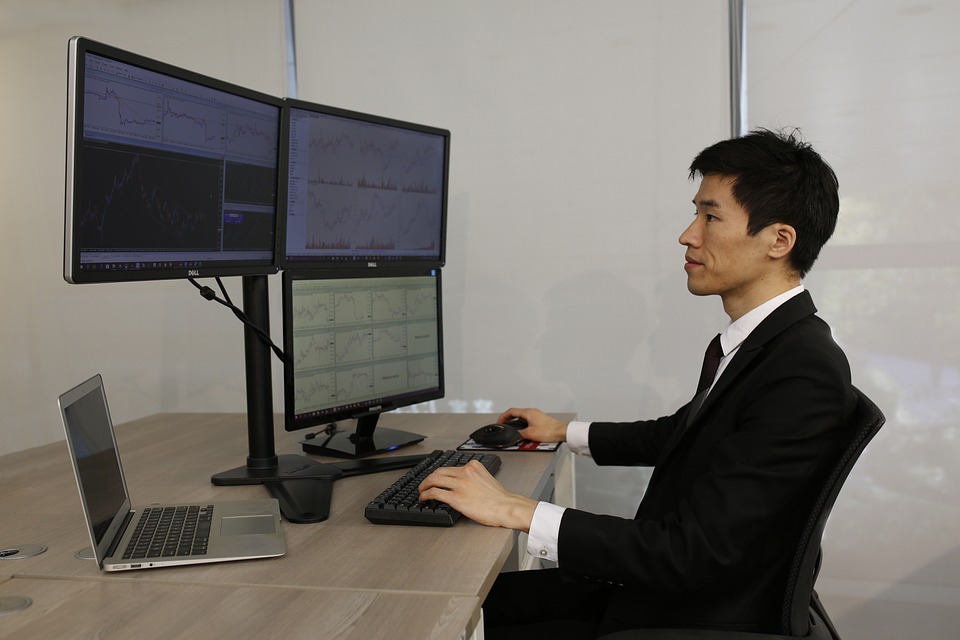The fact that financial markets are more accessible to small investors today is causing thousands – if not millions – more people to trade instruments like stocks and foreign currency pairs. You don’t have to be a certified or licensed trader to be able to bank profits from the financial markets. All you need is a trading account, a good platform from a reliable broker, and a starting capital to work with.
Just because you can start trading easily, however, doesn’t mean you can view trading in the financial markets as easy; it is also not a way to make a fortune quickly. You still need to rely on analysis and your ability to understand the market. These need to be sharpened before they can be useful. More importantly, there are five skills you need to master to be a more successful trader.
Research
At the top of our list, we have the ability to do thorough research and gather information. Research is a must-have skill in today’s financial markets, especially when you consider the rapid changes happening in the economy and how they can easily change the market entirely. Knowing how to do proper research also allows you to be better at making investment or trade decisions.
When thinking about investing in a company, for example, you need to spend some time understanding the company from top to bottom. Only then can you make the decision to buy shares in the company with all the knowledge in hand.
The same can be said for foreign currency pairs in the forex market. After all, they are two currencies of two countries (or more in the case of Euro), so the things that happen in those countries will affect the way the pair moves on the market. Knowledge is key, and research is how you amass relevant knowledge to survive and succeed in the financial markets.
Analysis
Browse through investment and trading websites – you will notice the two major factions when it comes to trading. There are traders who rely heavily on technical analysis, and there are those who turn to fundamental analysis whenever they need to make decisions.
So, which one is better? The best way to approach the market is by using both types of analysis to your advantage. Technical analysis of stocks and forex pairs help you to understand the things that are happening in the markets. You can review the way market trends shift, understand trading volumes and sentiments, and even get a good glimpse of how the market will react next.
Fundamental analysis, on the other hand, drags factors such as macroeconomic changes, new announcements, and market expectations into the picture. The more you analyze stocks and forex pairs based on their fundamentals, the more you will be able to see the big picture. From this explanation, it is easy to see how both types of analysis are very handy.
Emotional Control
As a trader, having complete control over your emotions is also absolutely necessary. When you do make trading decisions, you want to make them in a calm and calculated way. Only then can you trade like a pro and really see the market for what it is.
Trading emotionally is something that needs to be avoided at all cost. After hitting a big score and feeling overjoyed about the profit you just banked, trading emotionally may lead you to a series of trades that could wipe out that big profit entirely. Trying to chase your losses because you are feeling emotional about them can also add some more losses to your balance.
Rather than following emotional swings, learn to see every situation from an objective point of view; leave your emotions out of the trading decisions you make and simply look at the facts. This is where research and analysis come in handy. They help you gather and process the facts, and eventually let you make the right trading decisions.
Management
Just because you are a sole trader working from home, it doesn’t mean you don’t need discipline and control. In fact, home-based traders are the ones who need to improve their management skills more. This is because working from home means you do not have others to help keep things organized, including your time and the way you trade.
An easy way to learn how to manage your life as a trader better is by creating a plan; of course, you also need to stick with the plan for this approach to work. Figure out when you want to trade, how you will approach the market, the risks you are willing to bear with every trade you make, and other details about how you want your trading experience to be.
Good management also lets you do one more thing: analyze your trades. By looking at the trades you made in the past, you can continue to improve the way you approach the market. You can even find new ways to analyze different situations and anticipate market movements based on similar signs or movements happening in the past.
Patience
Last but not least, you need to develop patience as your secret weapon. Patience is always an important skill to have, especially when you frequently deal with a slow market. You don’t want to make the mistake of opening new trades that aren’t going to lead anywhere but some losses; patience can help you make this type of mistake.
Through patience, you will also learn to enjoy monitoring the market, opening positions, and seeing how those positions develop into big profits more. The process matters as much as the profits you bank. The more you enjoy trading, the more you can focus on the details that matter, and the more you will be able to spot the right trades to make accurately.
All of these skills are skills that you can master with training and plenty of practice. Mastering them, however, is how you become more capable and more successful as a trader, especially in today’s financial markets.












Add Comment